Early full digitization of profile data
At the conference, Director of the Department of Home Affairs of Nghe An province Nguyen Viet Hung shared that over the past 6 months, the locality has deployed the project to arrange commune-level administrative units and build a 2-level local government in the province according to the set plan and roadmap.
Accordingly, before the reorganization, Nghe An province had 412 commune-level administrative units (including 362 communes, 33 wards, and 17 towns). After the reorganization, Nghe An province has 130 commune-level administrative units (including 119 communes and 11 wards).
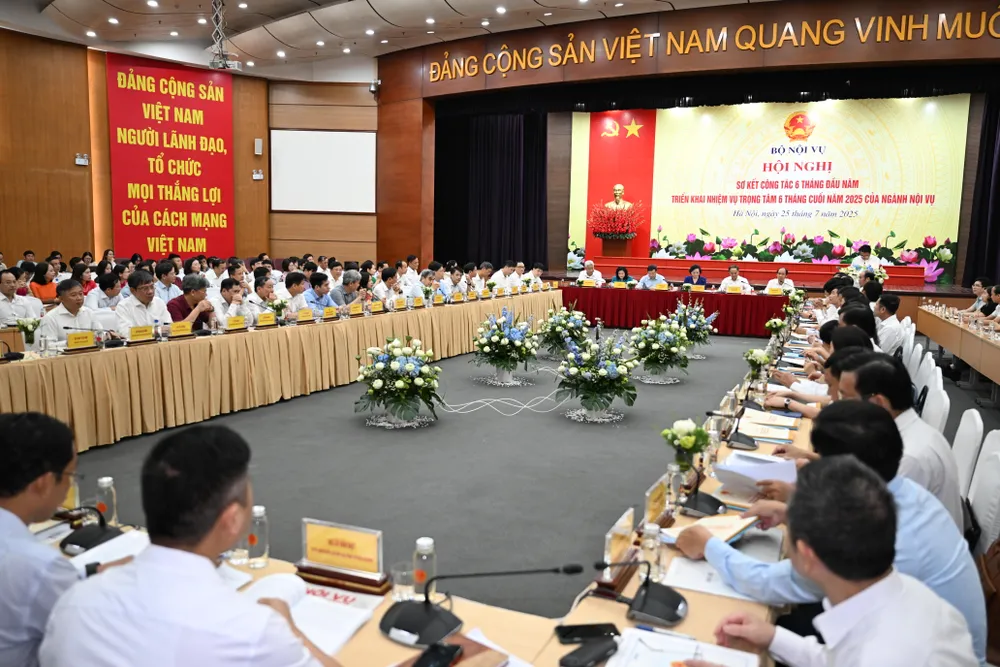
After the arrangement, the work of archiving documents when implementing the new local organization model posed an urgent requirement, especially in the context of Nghe An province suffering from the rain and floods of storm No. 3.
Mr. Nguyen Viet Hung said that the Department of Home Affairs has established two working groups to work directly in districts, cities and towns (before the arrangement) to inspect and count the current status of the volume of existing documents and provide guidance on safe storage, avoiding loss of documents, and providing guidance on clerical and archival work before, during and after the arrangement of the apparatus and implementation of a two-level local government.
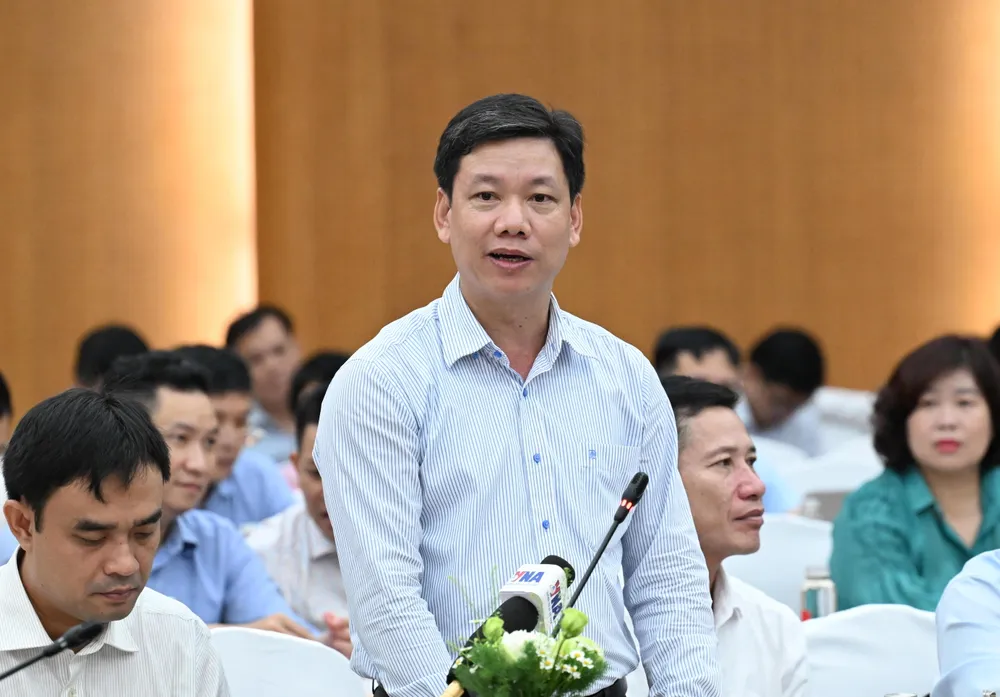
After reviewing, the People's Committee of Nghe An province has approved the plan to arrange, allocate and handle public assets for the (new) commune-level authorities after the arrangement to promptly hand over assets to ensure that the (new) commune-level authorities operate smoothly, effectively, efficiently and effectively; without interrupting management work, causing loss of assets, affecting state management work and providing public services.
“There is a lot of work at the commune level, which has been decentralized, and the commune People's Committee chairman basically performs the work of the district People's Committee chairman before. Currently, the volume of archived records is very large, and the locality often suffers from floods that threaten the safety of archived records, so this requires digitizing data and having specific regulations on preservation,” Mr. Hung raised the issue.
In the process of operating the 2-level local government organization model, according to Mr. Nguyen Viet Hung, Nghe An province encountered a number of difficulties and problems. First, the physical facilities and working equipment in some places are still difficult and lacking, not meeting the requirements of the task.
Along with that, the quality of the communal staff and civil servants is uneven, requiring time to get acquainted, adapt and assign tasks appropriate to their abilities and strengths. In Nghe An province, some communes and wards currently lack personnel with training qualifications and experience in state management in the fields of health, education , science and technology, leading to difficulties in the process of consulting and implementing tasks. There is also a situation of surplus and shortage of local staff and civil servants among communes, especially in remote and isolated communes.
“The volume of files and documents that are being accumulated and bundled and not yet sorted at the People's Committees of districts, cities and towns (before the arrangement) is large; the facilities and equipment arranged to serve the work of gathering, preserving and protecting files and documents are still limited,” Mr. Hung raised the issue and recommended that the Government clearly define the authority in recruiting, managing and using civil servants of educational public service units at the grassroots level to facilitate the deployment and implementation. Along with that, there should be a document soon appraising the project “Completing the modernization of administrative unit maps”.
The software connection system is not stable.
Meanwhile, sharing about the difficulties in operating the 2-level local government organization model, Mr. Nguyen Quoc Huu, Director of the Department of Home Affairs of Thai Nguyen province, said that when operating the new model, it requires officials to be diligent, hard-working, and not passive in order to be proactive in their work. In Thai Nguyen, when implementing the new government model, even at 10 p.m., when receiving instructions, officials at the department immediately held a meeting to report to the provincial leaders the next morning.
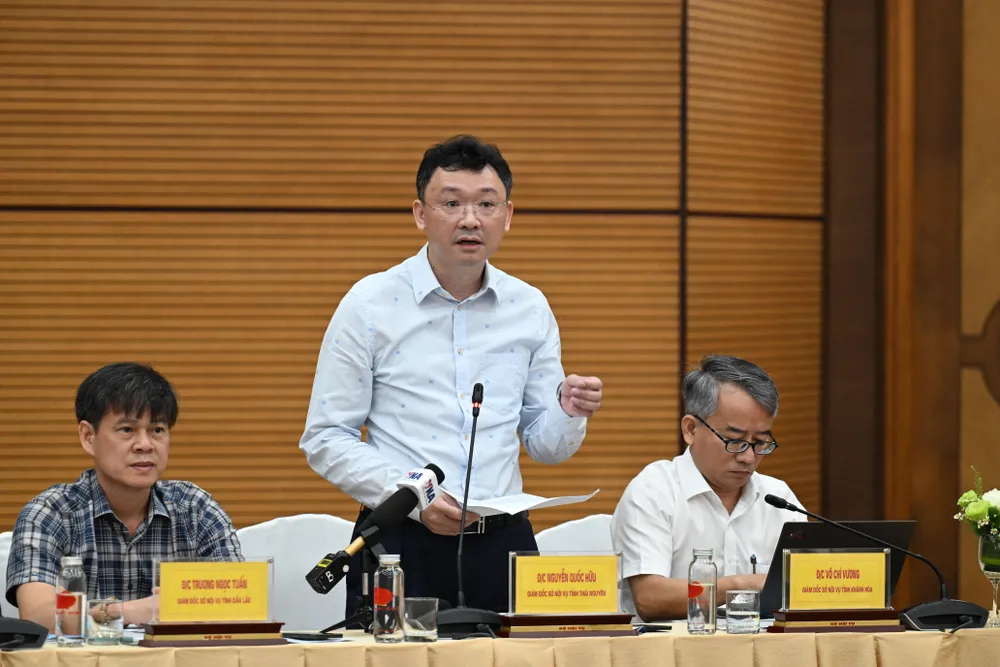
“The courage, intelligence, and dynamism of the internal affairs staff must be promoted. It is also very stressful, and sometimes we get “beaten” because the work is too much and hard. We also have to go down to the communes to guide the bottlenecks, hold hands and show them how to do things. If we do not resolve them at the grassroots level, they may become a big problem when they reach the province,” said Mr. Huu.
Mr. Nguyen Quoc Huu proposed that in mountainous areas, especially ethnic minorities, there are young people who are knowledgeable about the locality, the ethnic language, and technology. The Ministry of Home Affairs should have guidelines for recruiting part-time cadres at the commune level to carry out assigned tasks, because the workload at the commune level is very large.
Director of the Department of Home Affairs of Lam Dong province, Do Van Chung, also mentioned the current situation when operating the new local government organization model. Accordingly, Mr. Chung said that currently, specialized civil servants at the commune level have not been trained in depth, and sometimes they encounter many difficulties in the implementation process. Mr. Chung gave an example of the Department of Culture and Society, where the work from labor, organization, and salary is handled by one person, which is very difficult.
According to Mr. Chung, in this locality, there are still many small offices, some of which are degraded and need investment. Along with that, the software system connecting with ministries and branches is not stable, often has errors, making it difficult to handle administrative procedures. For example, the business registration software of the Ministry of Finance is slow and inadequate; the land database is not synchronized, the map system and tax sector are not connected in a timely manner...
According to Mr. Do Van Chung, the current anti-malware software system is not yet complete, which makes digital transformation difficult. From that situation, Mr. Do Van Chung proposed to promptly adjust the internal process of handling procedures, decentralize higher authority; complete data with the National Public Service Portal and organize more training courses...
“In operation, the number of land records is so large that communes and wards face many difficulties; civil servants face many difficulties in implementation, the number of qualified civil servants is still lacking compared to reality, especially in science and technology and land. Many fields do not have suitable specialized personnel,” Mr. Do Van Chung shared, adding that the department is proposing to have more civil servants or propose seconded civil servants to support the commune level.
Source: https://www.sggp.org.vn/so-luong-cong-chuc-cap-xa-co-trinh-do-con-thieu-post805369.html


![[Photo] General Secretary To Lam receives US Ambassador to Vietnam Marc Knapper](https://vphoto.vietnam.vn/thumb/1200x675/vietnam/resource/IMAGE/2025/9/29/c8fd0761aa184da7814aee57d87c49b3)

![[Photo] General Secretary To Lam attends the ceremony to celebrate the 80th anniversary of the post and telecommunications sector and the 66th anniversary of the science and technology sector.](https://vphoto.vietnam.vn/thumb/1200x675/vietnam/resource/IMAGE/2025/9/29/8e86b39b8fe44121a2b14a031f4cef46)
![[Photo] Many streets in Hanoi were flooded due to the effects of storm Bualoi](https://vphoto.vietnam.vn/thumb/1200x675/vietnam/resource/IMAGE/2025/9/29/18b658aa0fa2495c927ade4bbe0096df)
![[Photo] General Secretary To Lam, Secretary of the Central Military Commission attends the 12th Party Congress of the Army](https://vphoto.vietnam.vn/thumb/1200x675/vietnam/resource/IMAGE/2025/9/30/9b63aaa37ddb472ead84e3870a8ae825)







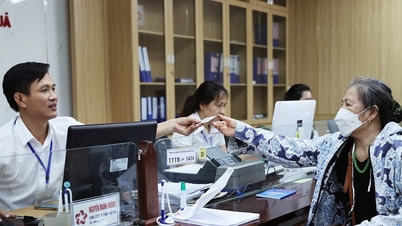







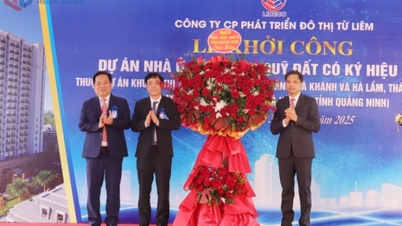



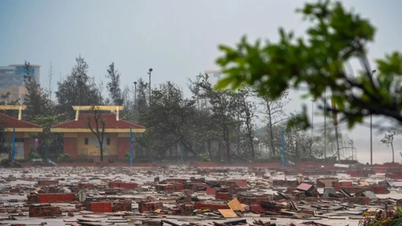






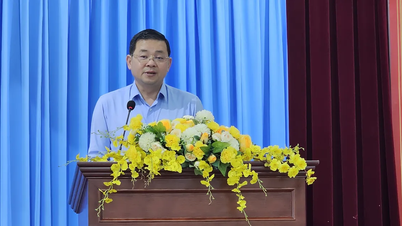
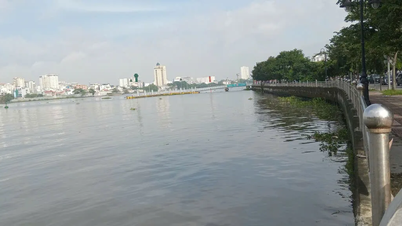
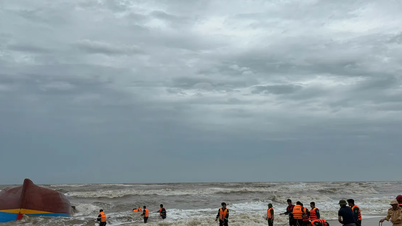

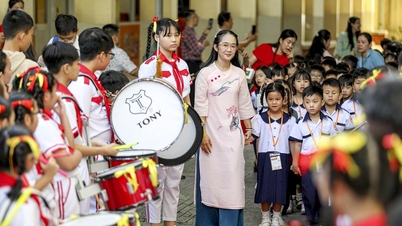

![[Photo] National Assembly Chairman Tran Thanh Man chairs the 8th Conference of full-time National Assembly deputies](https://vphoto.vietnam.vn/thumb/1200x675/vietnam/resource/IMAGE/2025/9/29/2c21459bc38d44ffaacd679ab9a0477c)








































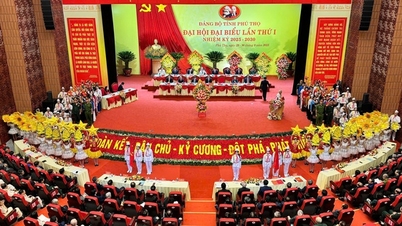
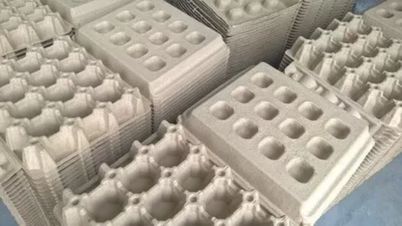
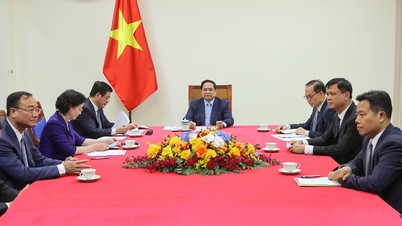


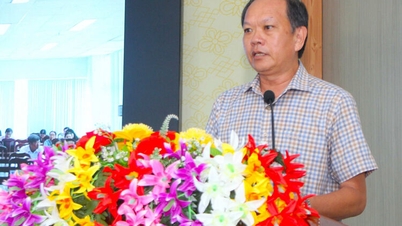

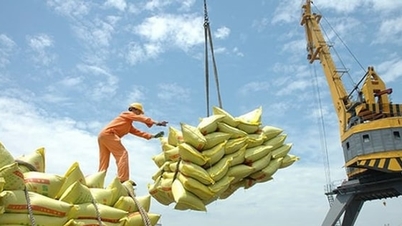
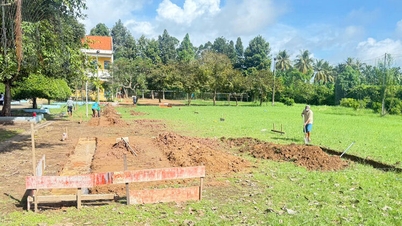


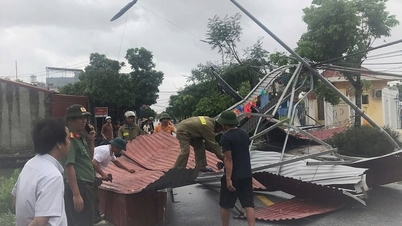













Comment (0)